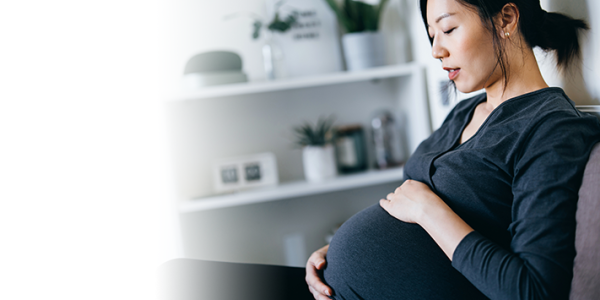
Thinking about growing your family? It's one of the most important decisions you'll ever make, so it's important to know the facts and be as prepared as possible – no matter your age.
While many people are able to get pregnant without any issues or delays, others may need the help of a fertility specialist to have a successful pregnancy. And unfortunately, there’s usually no way to anticipate which path you may be on until you start trying. But no matter what, a healthy pregnancy starts with a healthy body. That’s why if you are considering getting pregnant, the first step is to schedule an appointment with an OB. You and your doctor can discuss your current health, any concerns you may have, get routine labs and screenings done, and even screen for genetic diseases based on your family history. Your doctor will also give you recommendations to improve your health, if necessary, before trying to conceive, such as stopping smoking or getting to and maintaining a healthy weight. It’s also important to review any pre-existing conditions that may impact pregnancy, such as endometriosis, diabetes or lupus. Depending on your condition, your OB may send you to a fertility specialist or endocrinologist for further evaluation.
Even if you are already at a healthy weight, it’s important to remember to eat a varied diet consisting of lots of nutrient-packed fruits and vegetables, lean protein, whole grains, some healthy fats, and calcium-rich dairy products. Of course, there are also foods you should avoid while pregnant or trying to get pregnant, such as swordfish, mackerel, tuna and other fish that is high in mercury, as well as junk food and empty calories. You want to make sure you are getting as much nutrition as possible from high quality foods! You should also plan to eliminate alcohol completely and reduce your caffeine intake to no more than one 12-ounch cup of coffee a day. An occasional glass of wine may not hurt your chances of conceiving, but it’s an absolute no-no once you do become pregnant.
You and your doctor will also review your current medications and make sure that your vaccinations are up to date before trying to conceive. You’ll also want to discuss the need to add supplements to your diet, such as a prenatal vitamin. Folic acid is especially important to reduce the risk of certain birth defects of the brain and spinal cord – called neural tube defects (NTDs) by up to 70%. This includes spina bifida - the most common NTD.
Another important thing to consider? Reducing your stress. Trying to get pregnant is an exciting time, but it can also be very stressful. It’s important to relax and prioritize self-care during this time. And it’s good practice for the extra relaxation you will need to help you have a healthy pregnancy.
Of course, the age at which you start trying to conceive makes a difference. Studies shows that fertility begins to decline after age 30 and decreases fairly rapidly after age 35. Plus, the older you are the more likely you are to have other conditions that could affect fertility such as fibroids, endometriosis or blocked fallopian tubes. If you are age 35 or older and have not become pregnant after six months or trying, you (and your partner) should both have a fertility evaluation. You should also see a specialist if you have a history of miscarriages – regardless of your age. And if you are under the age of 35 and haven’t become pregnant within a year of trying, it’s time to see a fertility specialist. Keep in mind that even if it takes a little extra help, most women are still able to conceive and have a healthy pregnancy.
Lastly, to help increase your chances of conceiving in any given month, you need to get your timing right. Every month one of your ovaries releases an egg, and that egg is only fertile for 12-24 hours, so your window of success is relatively narrow. However, sperm can survive in your body for up to five days, so in most cases you’ll actually have several days each month when you can get pregnant. If your cycle is regular, you’re most likely ovulating about two weeks before you get your period – and that’s the peak time for conception. Tracking your periods can help you keep track of your optimal time for conception. If your cycle is irregular, you may want to use an ovulation predictor kit to detect the hormone surges that happen just before ovulation. These can be purchases in any drugstore and are very accurate when used correctly. Another option is to track your basal body temperature, which dips three or four days before you ovulate, then increases slightly for three days. Having sex when you notice the temperature dip, and then again for the next few days can increase your chances of conceiving.
Ready to take the next step in planning to grow your family? Start by making an appointment with your OB/GYN today. If you need help finding a doctor, click Find a Provider.
This article appeared in the February 2024 edition of the HealthPerks newsletter.

